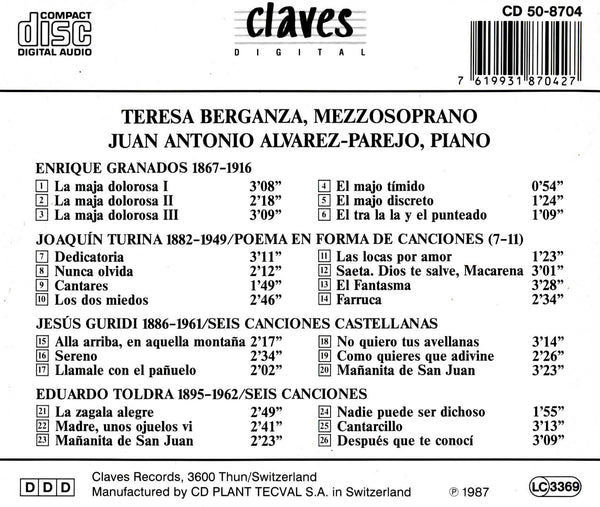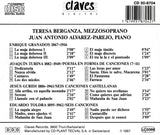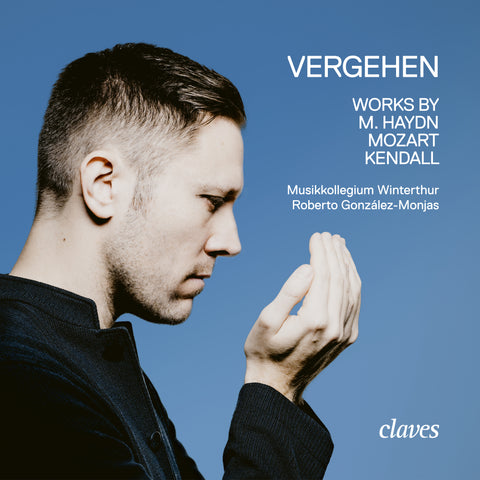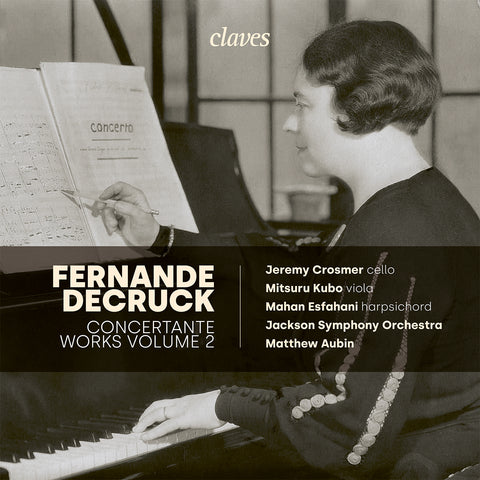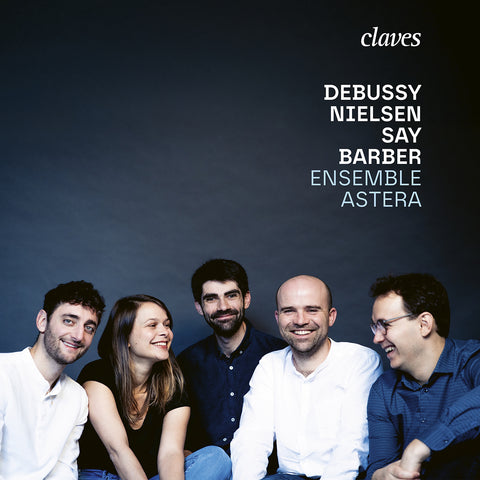(1987) Canciones Españolas: Granados, Turina, Guridi & Toldrá
Category(ies): Oper vocal Piano Rarities
Instrument(s): Piano
Vocal(s): Mezzo-soprano
Main Composer: Joaquín Turina
CD set: 1
Catalog N°:
CD 8704
Release: 1987
EAN/UPC: 7619931870427
- UPC: 829410485463
This album is now on repressing. Pre-order it at a special price now.
CHF 18.50
This album is no longer available on CD.
This album has not been released yet. Pre-order it from now.
CHF 18.50
This album is no longer available on CD.
This album is no longer available on CD.
VAT included for Switzerland & UE
Free shipping
This album is now on repressing. Pre-order it at a special price now.
CHF 18.50
This album is no longer available on CD.
This album has not been released yet.
Pre-order it at a special price now.
CHF 18.50
This album is no longer available on CD.
This album is no longer available on CD.
CANCIONES ESPAÑOLAS: GRANADOS, TURINA, GURIDI & TOLDRÁ
Who would expect anything as moving as the small cycle « La Maja dolorosa I-III » by Enrique Granados (1867-1916), which opens Teresa Berganza’s choice of songs and which, regarding its emotional intensity, can be compared only to Schumann’s « Frauenliebe und leben » ?
These three wonderful laments of love reveal the composer’s personality, his emotional depth and sensibility to a much greater extent than the three following light pieces rooted in popular mentality, for they express a striking hopelessness: “No quiero vivir sin é / porque es morir así vivir !” (“I do not want to live without him, since to live thus is to die!”). One is tempted to understand these laments as symbols of Granados’ character and fate, of this quiet, introverted, fine man and artist – especially when we know that on his way back from the greatest success of his life, the first stage performance of the “Goyescas” at the New York Metropolitan Opera, he lost his life in a shipwreck in the English Channel on March 24th, 1916.
The ferry-boat from Liverpool to Dieppe was torpedoed by a German submarine and sank. Granados, who had already been rescued by a safety boat, jumped back into the water to save his life, in the course of which attempt both of them drowned. Quite in opposition to his friend and contemporary Albéniz he was averse to brilliance and virtuosity, although he, too, composed mainly for the piano, yet in a more introspective way. His style seeks significance, seeks the idea behind the outer appearance. He therefore was rightly compared with Goya: “Like Goya he was able to reproduce the essence of what he saw; he knew how to look for what was hidden behind the façades … “Granados” songs on the present recording give evidence of this special talent.
Who would expect anything as moving as the small cycle « La Maja dolorosa I-III » by Enrique Granados (1867-1916), which opens Teresa Berganza’s choice of songs and which, regarding its emotional intensity, can be compared only to Schumann’s « Frauenliebe und leben » ?
These three wonderful laments of love reveal the composer’s personality, his emotional depth and sensibility to a much greater extent than the three following light pieces rooted in popular mentality, for they express a striking hopelessness: “No quiero vivir sin é / porque es morir así vivir !” (“I do not want to live without him, since to live thus is to die!”). One is tempted to understand these laments as symbols of Granados’ character and fate, of this quiet, introverted, fine man and artist – especially when we know that on his way back from the greatest success of his life, the first stage performance of the “Goyescas” at the New York Metropolitan Opera, he lost his life in a shipwreck in the English Channel on March 24th, 1916.
The ferry-boat from Liverpool to Dieppe was torpedoed by a German submarine and sank. Granados, who had already been rescued by a safety boat, jumped back into the water to save his life, in the course of which attempt both of them drowned. Quite in opposition to his friend and contemporary Albéniz he was averse to brilliance and virtuosity, although he, too, composed mainly for the piano, yet in a more introspective way. His style seeks significance, seeks the idea behind the outer appearance. He therefore was rightly compared with Goya: “Like Goya he was able to reproduce the essence of what he saw; he knew how to look for what was hidden behind the façades … “Granados” songs on the present recording give evidence of this special talent.
Return to the album | Composer(s): Joaquín Turina | Main Artist: Teresa Berganza








